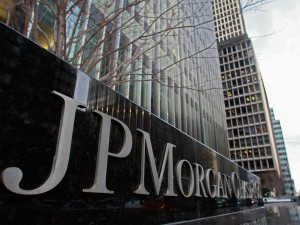JPMorgan uses blockchain to settle BlackRock, Barclays stock transactions
JPMorgan Chase & Co., the largest US bank by assets, has executed its inaugural collateral settlement using blockchain technology as it aims to integrate the tech underlying cryptocurrencies into mainstream banking functions.

The settlement transaction involved BlackRock and Barclays, converting shares from one of its money market funds into digital tokens utilizing JPMorgan’s Ethereum-based Onyx blockchain and the bank’s Tokenized Collateral Network (TCN). These tokens were subsequently transferred to Barclays Plc, serving as collateral for an over-the-counter derivatives transaction between the two financial giants.
Following its debut, JPMorgan’s Tokenized Collateral Network (TCN) has seen a rapid evolution from its initial internal testing phase in May 2022. At that time, the bank transferred tokenized representations of shares from a BlackRock money market fund to serve as collateral on its private blockchain platform, Onyx Digital Assets.
This internal test laid the groundwork for TCN’s official launch. Ed Bond, head of trading services at JPMorgan, revealed to Bloomberg that since TCN has gone live, JPMorgan has already lined up a roster of other clients and transactions, indicating industry interest in the platform.
One of the standout features of TCN, as highlighted by Tyrone Lobban, is the sheer speed of collateral movement. Traditionally, collateral transfers could span an entire day. With TCN, this process is nearly instantaneous. JPMorgan envisions a transformative impact on the financial landscape if TCN is adopted more widely. The ability to quickly unlock capital, which would otherwise remain dormant, allows it to be repurposed as collateral in real-time transactions, exponentially increasing efficiency and liquidity in the market.
This move is seen by many in the financial sector as a testament to the increasing trust and acceptance of blockchain technology among institutional players. While blockchain is intrinsically associated with cryptocurrencies, its applications in various facets of banking and finance – from settlements to supply chain finance – are drawing increasing attention.
Elsewhere, JPMorgan is reportedly in the early stages of exploring a blockchain-based digital deposit token aimed at expediting cross-border payments and settlement processes.
While the lender has developed a big portion of the necessary infrastructure for this new payment method, it won’t proceed with the token’s development unless it receives approval from US regulators. If approval is granted, the US biggest bank by assets could potentially launch this product for corporate clients within a year of receiving regulatory clearance.
Meanwhile, there is growing speculation among market participants that U.S. regulators may be favoring established Wall Street firms while taking regulatory actions against crypto-native companies.









